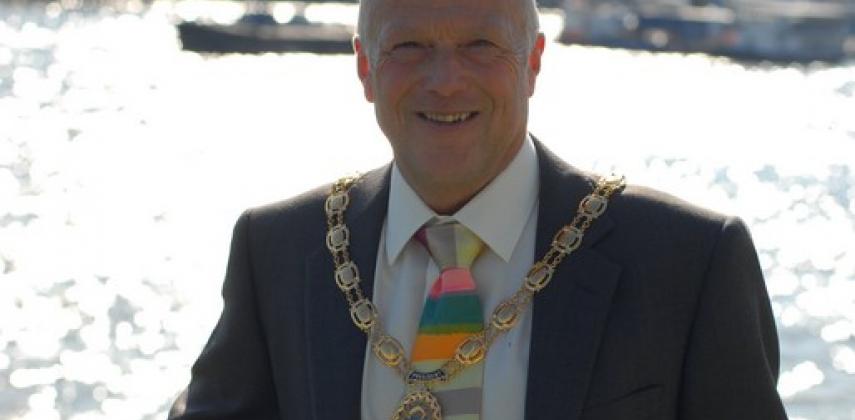David Wilkes is associate director of Arup and the new global president of the Chartered Institution of Water and Environmental Management (CIWEM). A specialist in river and coastal engineering, his work covers master planning and development, and the wise management of resources.
A graduate of the University of Durham, Wilkes is a fellow of CIWEM, a chartered engineer and a member of the Institution of Civil Engineers. Before joining Arup, he worked for the UK Environment Agency, where he managed the Thames Barrier, with responsibility for protecting London from the threats of flooding, among other missions.
Prior to a recent Hong Kong visit, he swaps e-mails with Rex Aguado on environmental science and what many consider to be the world’s most precious and threatened resource – water.
What are the latest trends in water and environmental engineering?
The world is changing rapidly and this poses engineering and environmental challenges as we try to reach a balance between mankind and nature. There are three major concerns – global population growth, urbanisation and climate change.
We may be heading for the perfect storm scenario where global demand for water is predicted to increase by 30 per cent by 2030, along with an increase in demand for food and energy of 50 per cent.
It is also predicted that by 2030, over 60 per cent of the global population will live in cities. And the climate is changing, resulting in more volatile weather patterns, with droughts, floods and storms becoming more frequent.
Overcoming these challenges creates opportunities, but there needs to be long-term planning to build more sustainable and resilient communities. This is where water and environmental professionals can make a real difference.
Are these trends also seen in Asia?
Yes, but Asia faces its own version of these challenges. For example, Vietnam faces major flooding in its delta regions, while it is also suffering from water stress problems. Our water engineers and environmental professionals are advising the Vietnamese government on developing a more resilient Ho Chi Minh City.
In Hong Kong and China, the issues vary, but in some respects are similar. In Hong Kong, the challenges relate to making space – space for water and for waste disposal. The city has to meet the challenges of flooding, urban drainage and waste management, with landfill already near capacity.
In China, water resource issues, flooding, air pollution and waste management are major challenges. The 12th Five Year Plan emphasises clean energy sources as an important step to ensure sustainable growth for the nation, with clear targets and proposed measures in reduction of greenhouse gas emission. Businesses are increasingly concerned about climate change and sustainability as a result of pressure from regulations and stakeholders.
What factors are driving jobs growth in this sector?
The demand in water and environmental engineering industry is growing. Environmental issues are receiving more and more attention from the general public.
Businesses are increasingly concerned about environmental impacts and sustainability as a result of pressure from regulators and stakeholders, and they are being driven to invest in the protection of the environment and adopt sustainable designs in buildings to improve energy and water efficiency.
New infrastructure and buildings are designed with sustainability in mind. These initiatives require a concerted effort from environmental professionals to bring them into full play.
For example, the Harbour Area Treatment Scheme (HATS) Stage 2A – which is one of the largest-ever sewerage infrastructure schemes in Hong Kong aimed at improving Victoria Harbour’s water quality – is an example of the kind of project where water and environmental professionals are making a difference to the city’s environment by working together.
In Asia, particularly China and Hong Kong, do we have the manpower to adequately supply the water and environmental engineering industry?
We have found good engineers here in the region, and companies such as Arup build on this skill base by utilising our global practice networks, where we can bring together people with the different skill sets from all over the world.
I have also learned that young engineers from local educational institutions are equipped with the necessary knowledge, theories and ability to research and learn. But this can be enhanced by opportunities for them to apply the knowledge into real practice and learn from global skills networks.
What is the typical career track for somebody working in the water and environmental engineering industry?
Those working in the water and environmental engineering industry should start by gaining relevant training experience to apply the academic knowledge to real life situations. They should also start the process of working towards becoming chartered. Nowadays, given that environmental issues are inter-related and technology keeps advancing, people with different backgrounds, broader training and expertise are coming into this sector, making it a more vibrant field to work in.
There are opportunities in both private and public sectors, and the demand for the expertise is growing. Private companies allow a person to get more experience in different projects and access global projects, but public sector gives a strong ethos of ownership and public benefit.
Moreover, professional institutions such as CIWEM also provide recognition for engineers, scientists, environmental professionals and create a platform for global exchange of skills, knowledge and experience.
Opportunities are there both in developed and developing countries, as they have different needs and, hence, different challenges, and will require different technologies, ideas and management to deal with their respective issues.
What is the ‘next big thing’ for the water and environmental engineering industry?
Instead of a major revolutionary technological change, the “next big thing” should be a behavioural change in people’s daily lives to help reach a point of balance with nature which safeguards our future. Water should be valued more than oil and gold.


